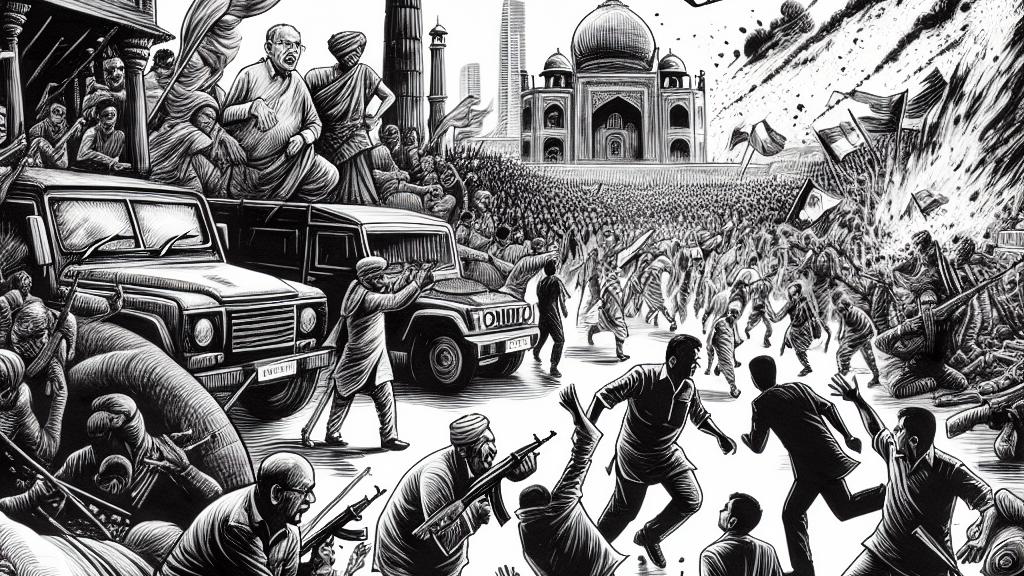Hindus in Bangladesh: A Call to Action - Biden's Watchful Eye
Overview
- Escalating violence against Bangladesh's Hindu minority demands urgent action from the U.S.
- Nationwide protests by Hindu-Americans push for justice and government intervention.
- International community urged to take a stand against human rights violations.

Crisis Unfolding in Bangladesh
The political landscape in Bangladesh has shifted dramatically following the resignation of Prime Minister Sheikh Hasina on August 5, 2024. This event has left the nation in turmoil, particularly affecting the Hindu minority community which has faced a surge in violence. Reports indicate over 205 violent incidents against Hindus in the aftermath, highlighting a dire need for immediate attention to their plight. The United Nations has expressed concern, calling on the interim government led by Nobel Peace Prize laureate Muhammad Yunus to implement measures that assure the safety and rights of all citizens, especially those belonging to minority groups who now live in fear during this chaotic transition.
U.S. Government's Vigilant Stance
In light of the escalating tensions, the U.S. government has committed to closely monitoring the situation in Bangladesh. White House Press Secretary Karine Jean-Pierre emphatically stated that President Biden remains steadfast in advocating for human rights, ensuring that the concerns of the Hindu community are not overlooked. Hindu-American organizations have rallied with great urgency, urging the U.S. government to intervene on behalf of those whose lives and properties are at risk. Protests in cities across America have demonstrated a powerful call for justice, showcasing banners that read 'Hindu Lives Matter' and compelling lawmakers to ensure that the U.S. takes a proactive stance to protect vulnerable populations around the world.
Unity Among Minorities and Global Advocacy Efforts
In Bangladesh, the response from minority groups reveals a united stand against injustice. The 'Bangladesh Hindu, Buddha, Christian Unity Council' has organized large-scale demonstrations, where participants carry signs declaring 'Bangladesh is our motherland; we won't go anywhere.' The emotional intensity of these protests, alongside the participation of various religious minorities, signifies a collective refusal to be silenced or displaced. As the violence escalates, it is clear that grassroots movements are forming a critical voice calling for accountability from local authorities. Activists argue that sustained international pressure, including congressional hearings and global advocacy campaigns, is essential to highlight the severity of the human rights violations occurring in Bangladesh and ensure that those responsible are held accountable.
The Need for International Solidarity and Action
The international community has an essential role in addressing the alarming situation in Bangladesh. Experts warn that mere observation is insufficient; active engagement is critical. The U.S. and other global powers must leverage diplomatic channels to urge the interim government to take meaningful action in protecting minorities and preserving human rights. Proposals for legislative measures, such as sanctions or conditions on aid, could compel authorities to prioritize safety for all citizens. Additionally, fostering a coalition of like-minded countries to advocate for human rights in Bangladesh may create a formidable pressure that could lead to significant change. The voices from protests must resonate beyond borders, emphasizing that violence against any community is a violation against humanity that deserves urgent and collective action.

Loading...